Indianz.Com > News > ‘It takes our own people to help our own people’: Marchers honor lost Native children
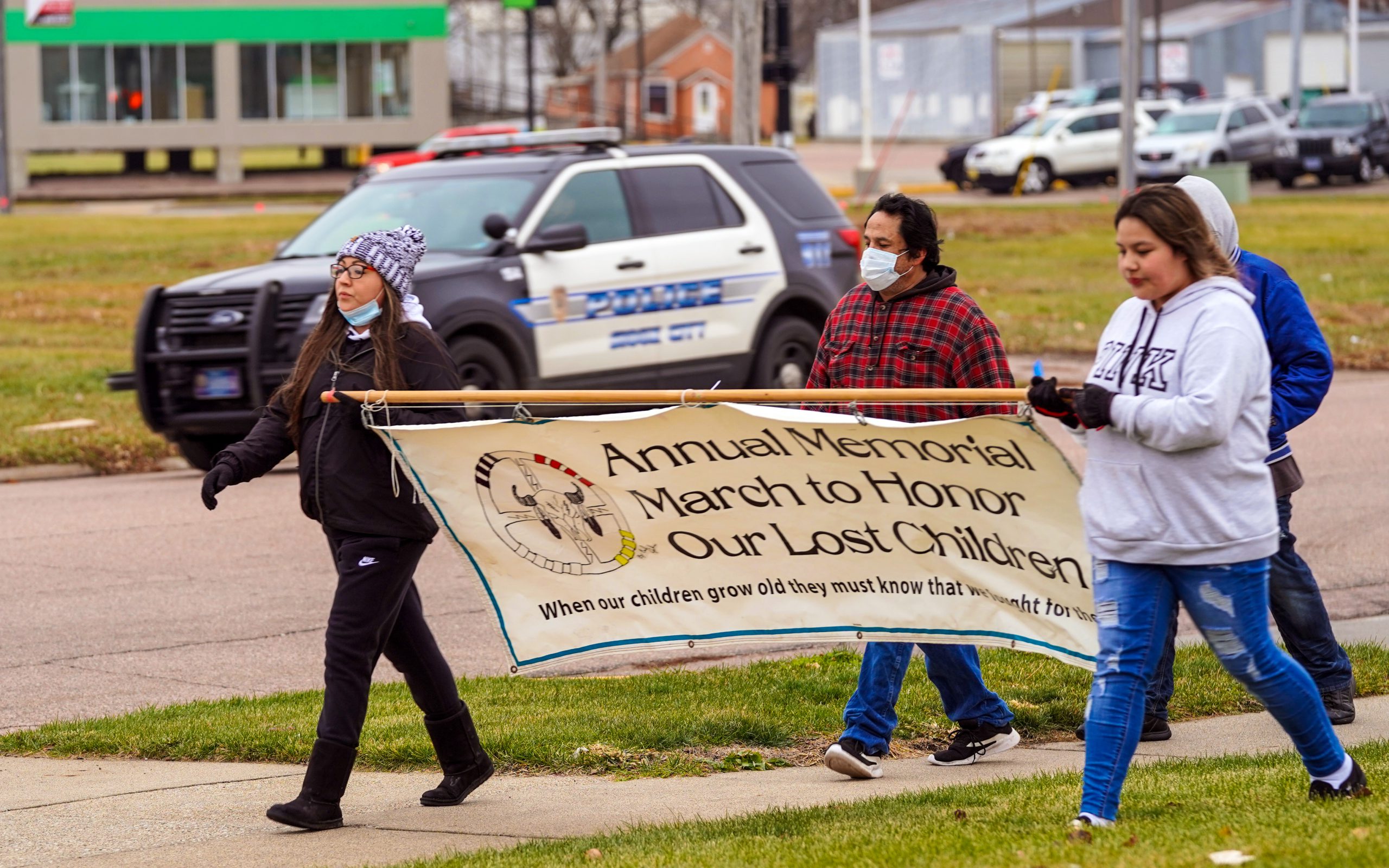
‘It takes our own people to help our own people’
Native community honors children lost to state welfare system[/h]
Friday, November 27, 2020
Indianz.Com
• PHOTOS: 18th Annual Memorial March to Honor Our Lost Children
SIOUX CITY, Iowa – As they have for the past 17 years, Native men and women stood atop a windswept hill overlooking the Missouri River here on Wednesday morning and prayed for the Native children lost to the child welfare system.
The 18th Annual Memorial March to Honor Our Lost Children was held Wednesday in Sioux City. It began at War Eagle Park before a 31-foot statue of Santee Sioux Chief War Eagle.
Terry Medina, a Winnebago Tribal Court probation officer, began the event by invoking the name of the march’s founder, the late Frank LaMere, a Winnebago community organizer who died in June 2019 after a brief battle with cancer.
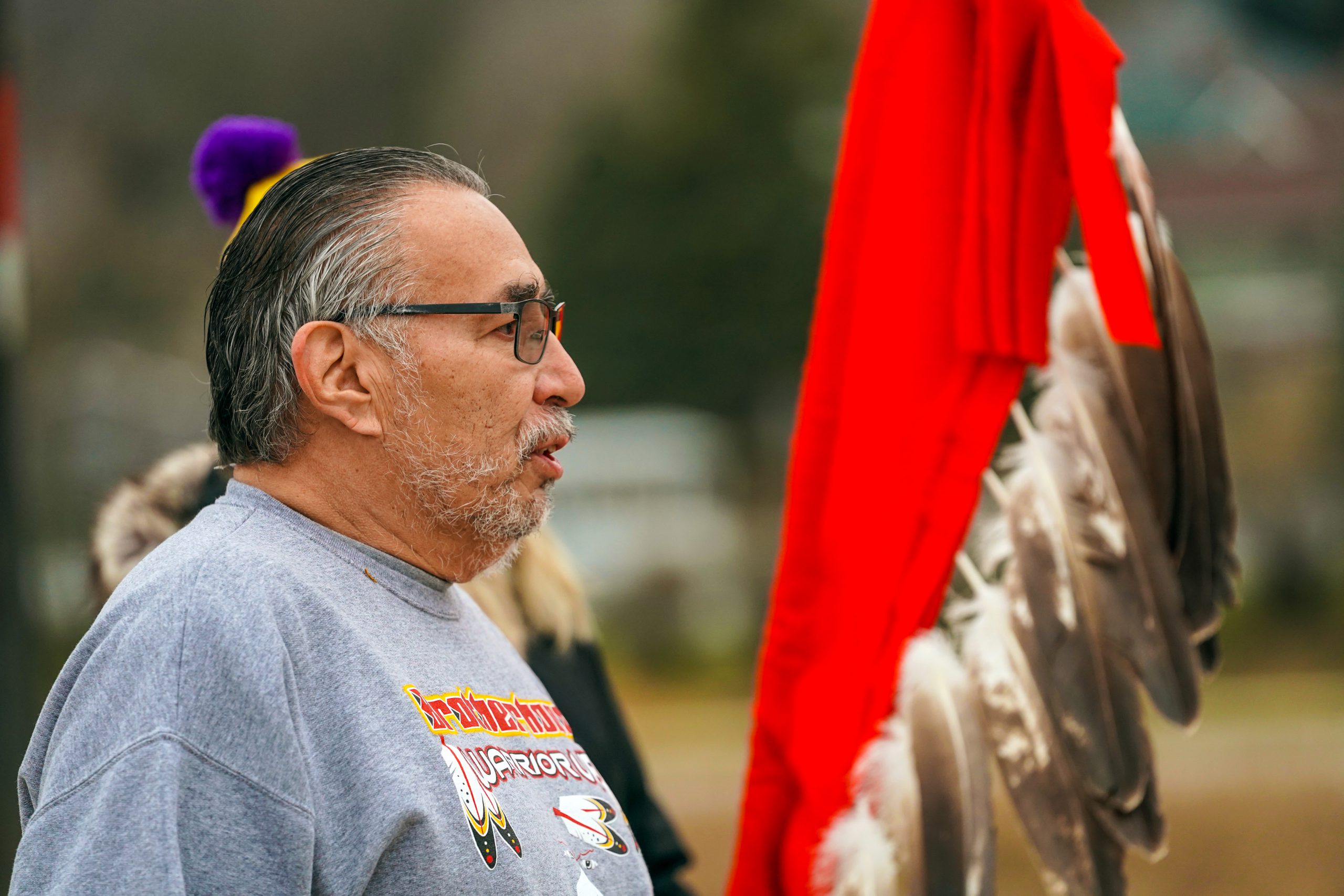

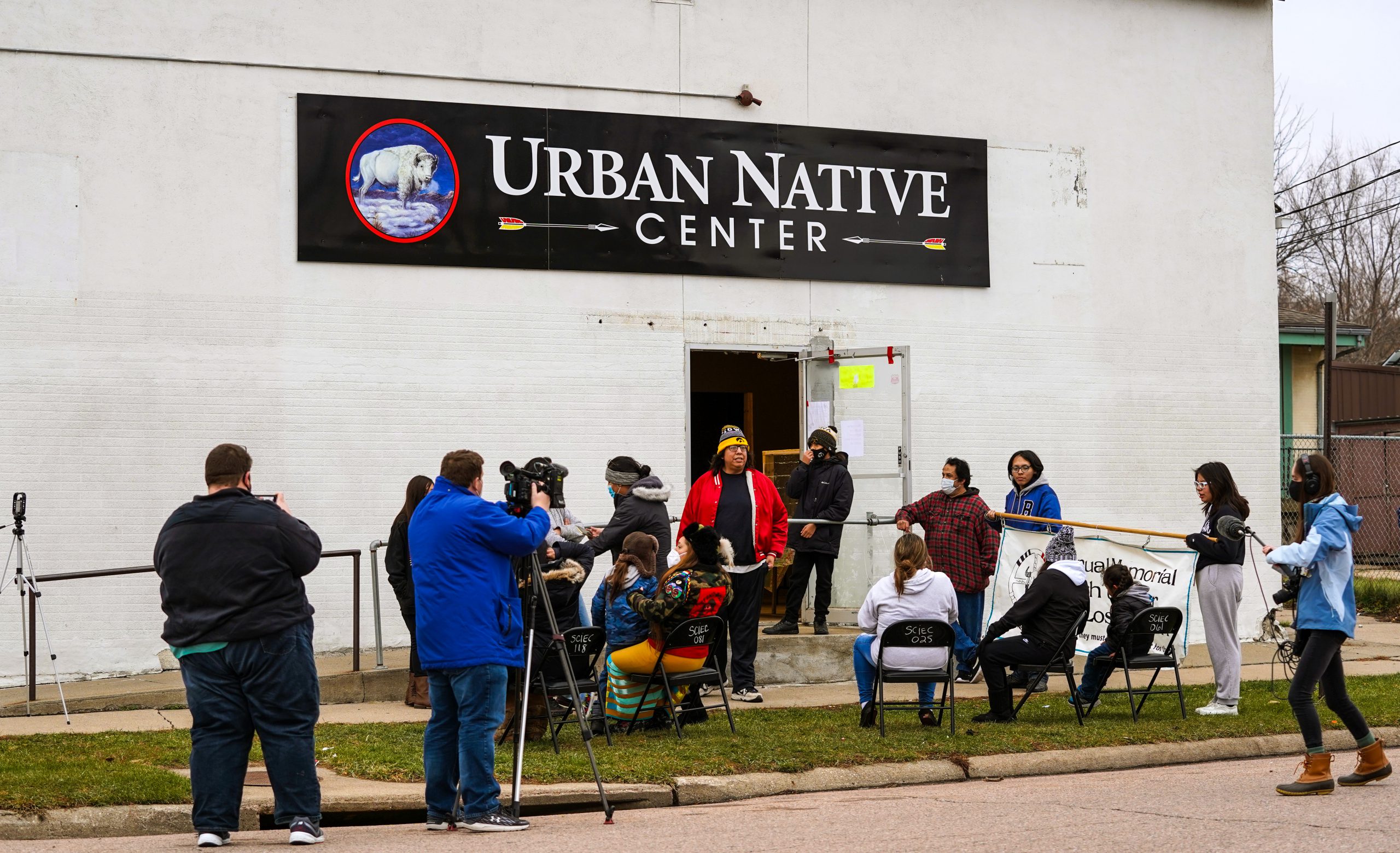
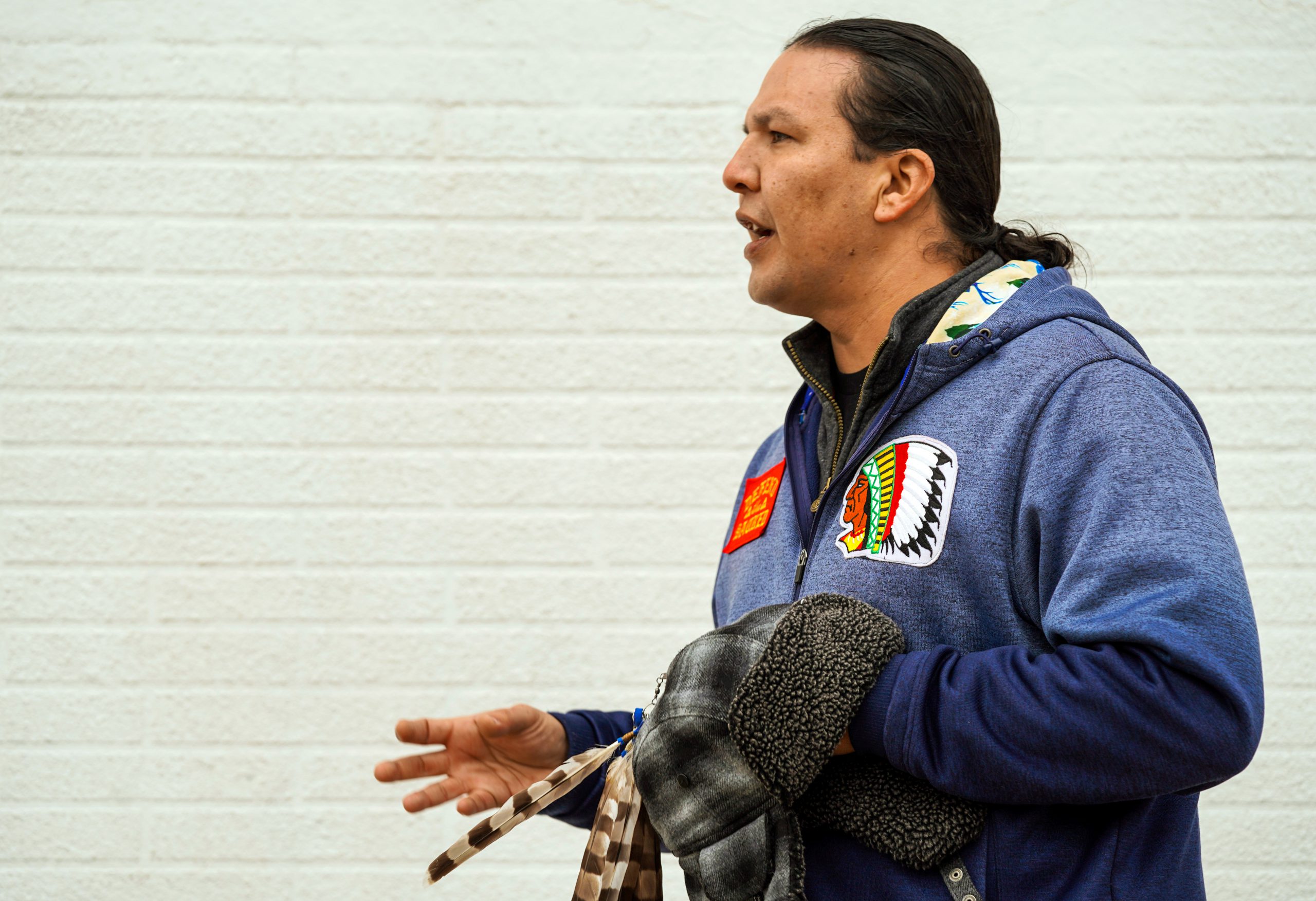
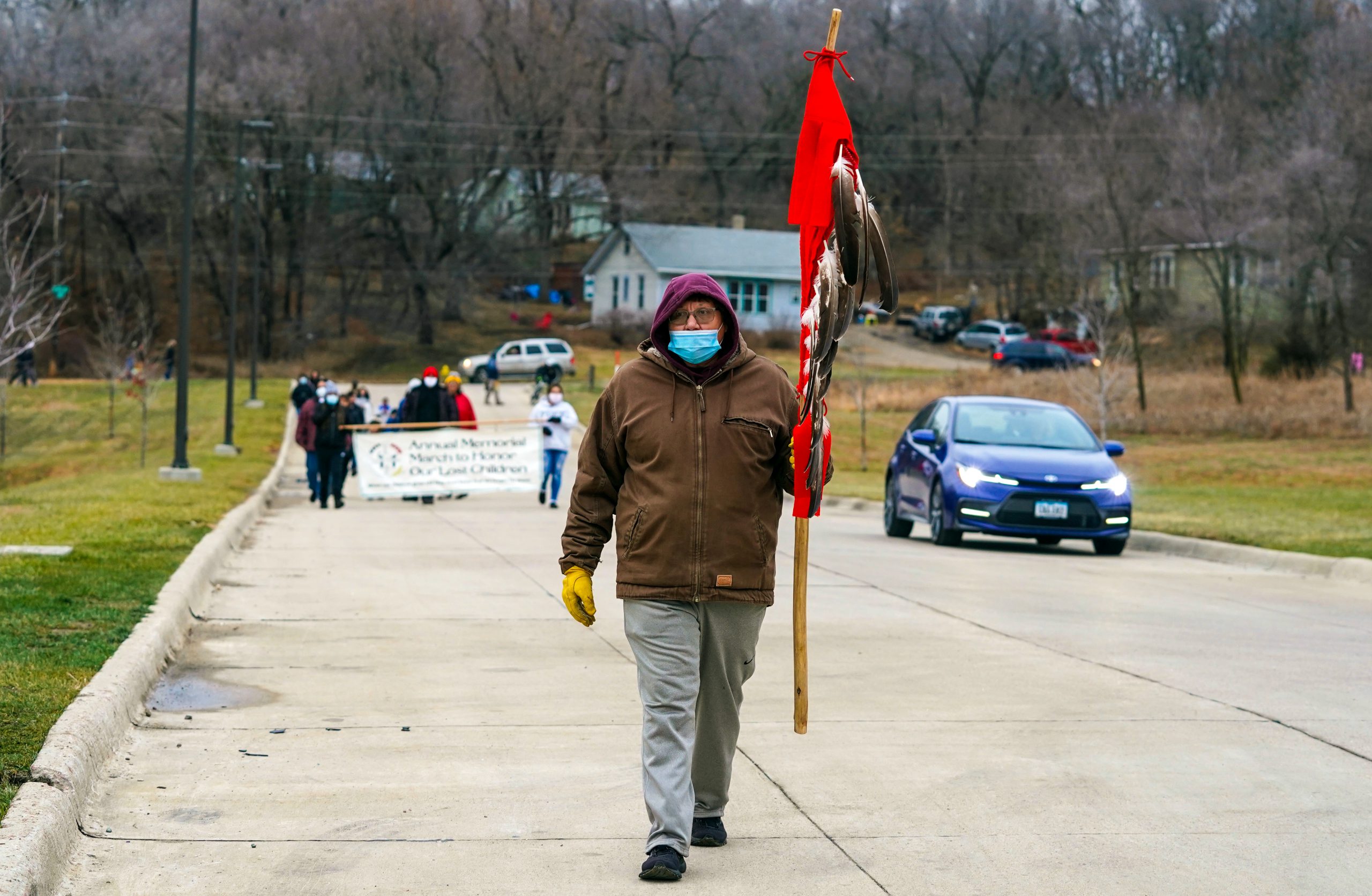
Search
Filed Under
Tags
More Headlines
Native America Calling: A sample of Native Guitars Tour 2024
Native America Calling: How Native literature is changing the mainstream narrative
Native America Calling: No ordinary animal
Native America Calling: Safeguards on Artificial Intelligence
NAFOA: 5 Things You Need to Know this Week
Chuck Hoskin: Cherokee Nation takes the lead for our environment
Native America Calling: Earth Day assessment for Native peoples
Cronkite News: Gathering addresses ‘epidemic’ among Native people
VIDEO: Cody Desautel on tribes and federal forest management
AUDIO: Legislative Hearing on Discussion Draft of Forest Management Bill
Native America Calling: Remembering the 1974 Navajo border town murders
Native America Calling: Can the right approach close the Native immunization gap?
Cronkite News: Long COVID cases remain high in Arizona
Native America Calling: Eyes in the sky for development, public safety, and recreation
Native America Calling: Three new films offer diverse views of Native life
More Headlines
Native America Calling: How Native literature is changing the mainstream narrative
Native America Calling: No ordinary animal
Native America Calling: Safeguards on Artificial Intelligence
NAFOA: 5 Things You Need to Know this Week
Chuck Hoskin: Cherokee Nation takes the lead for our environment
Native America Calling: Earth Day assessment for Native peoples
Cronkite News: Gathering addresses ‘epidemic’ among Native people
VIDEO: Cody Desautel on tribes and federal forest management
AUDIO: Legislative Hearing on Discussion Draft of Forest Management Bill
Native America Calling: Remembering the 1974 Navajo border town murders
Native America Calling: Can the right approach close the Native immunization gap?
Cronkite News: Long COVID cases remain high in Arizona
Native America Calling: Eyes in the sky for development, public safety, and recreation
Native America Calling: Three new films offer diverse views of Native life
More Headlines